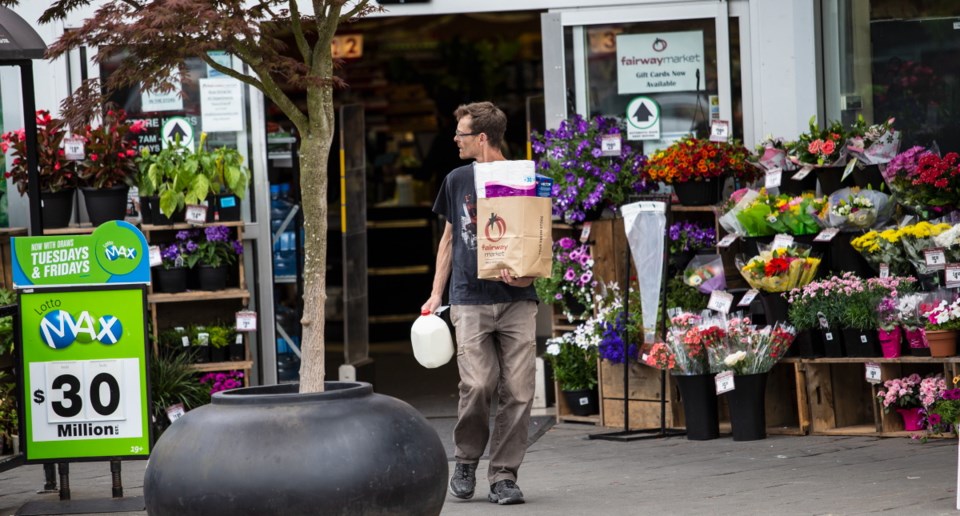The court battle over Victoria’s ban on single-use plastic bags has reached a dead end.
The Supreme Court of Canada on Thursday declined to hear the city’s appeal of a lower court decision that struck down its bylaw.
As is typical, the court provided no reasons for its decision.
Mayor Lisa Helps said the result did not come as a shock, since the Supreme Court only hears a fraction of the appeals it receives.
“So of course we’re disappointed, but not surprised,” she told reporters at city hall. “However, we’re already determining our next steps, which are to apply to the province with our initial bylaw, asking them to approve it.”
The city will also ask for legislative changes so that it doesn’t require provincial approval to ban other single-use items in the future, and can manage its own waste.
Despite the court defeat, Helps said the city’s Checkout Bag Regulation Bylaw has been a success, stopping more than 17 million plastic bags from reaching the landfill.
“We have started a movement,” she said. “There were dozens of local governments across the province that followed us and banned plastic bags, that are banning single-use cups.”
Even with the bylaw struck down by the courts, many of the city’s retailers are operating as if it were still in effect, she said.
Under the bylaw, businesses were barred from providing customers with single-use plastic bags and instead had to charge 15 cents for a paper bag or $1 for a reusable bag.
The Canadian Plastic Bag Association, which represents manufacturers and distributors of plastic shopping bags, launched a court challenge before the bylaw took effect in July 2018.
Victoria won in B.C. Supreme Court, but lost at the B.C. Court of Appeal, which found that the primary purpose of Victoria’s bylaw was to protect the natural environment rather than to regulate business. As such, the city should have sought provincial approval for the bylaw, but failed to do so, the court said.
Craig Foster, who speaks for the plastic bag association, welcomed the Supreme Court of Canada’s decision not to hear Victoria’s appeal.
“I think we’re glad it’s over,” he said. “It’s been a distraction from Day 1 — the whole legal discussion about who had the authority. So it’s over and now we can get back to business.”
Victoria pursued the appeal even as the federal and provincial governments contemplate their own bans on single-use plastics. The province is poised to bring in new regulations this year, while the federal government announced last June that it will ban plastic bags and other items as early as 2021.
Foster said his association has been working with the province on how to improve the existing system in B.C.
“Quite frankly, there’s very few places in the world you can go to where you’ve got over 400 retail stores that take the plastic shopping bag back and we do in B.C.,” he said.
“I find it really hard to understand how the existing system, as good as it is, gets lost in all these conversations.”
The association argues that bylaws such as the one implemented by Victoria can have unintended consequences.
“We have a major push to put reusable bags into the system,” Foster said. “What’s got lost is those reusable bags are going to wind up in the trash because they’re not recyclable. There’s no place they can be recycled. So when they wear out — and they do wear out — they’ve got to go in the trash.”
Helps disagreed with that analysis.
“Obviously, they’re pushing forward their industry,” she said. “Recycling is not enough. What we really want to get to is a circular zero-waste economy.
“So what we’ll eventually see is those resuable bags being made out of materials that, when they’re finished, they can just be put into the backyard compost and composted. So we’ve got a long way to go.”
— with a file from Bill Cleverley



